When an individual finishes high school, they have many different options and avenues that they can take. Some of these may include going to college, community college, getting a two year degree, going to trade school or going into the workforce. After High School an individual with hearing loss has access to different laws as IDEA, IEPs and the 504 plans will no longer apply. The individual is entitled to the Americans with Disabilities Act (ADA) and Section 504 but there is typically not a formalized plan like at IEP or 504. The ADA protects individuals with disabilities from discrimination.
When transitioning from high school, whether it is to college or the workforce, deaf and hard of hearing individuals need to learn to be their own advocates. This stage focuses on empowering young adults to take an active role in decision-making, accessing support systems, and advocating for their own needs. We have gathered information from individuals who have successfully navigated this transition, along with education experts and parents, to help guide you in becoming your own best advocate.

a. Accommodations could include:

“Don’t be afraid to make friends! When I first told my friends about my hearing loss they were intrigued and became advocates for me.”
- Ethan M.

“I sat near the front of the classroom. You don't have to be in the front row in the middle and be singled out! I used an FM system to make sure I heard everything my professor said. Also, don’t sit near a fan.”
- Marne S. Boston College Undergrad/USC Grad school

“I chose HPU because I wanted to be in a smaller school but in a mainstream environment. I made sure that the school provided the basic accommodations that I required. I utilized closed captioning, copies of Powerpoints and safety technology in the dorms.”
- Jenna H.
High Point University, NC
6000 students
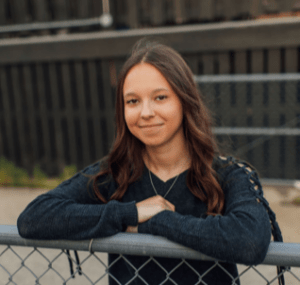
“I chose to go to RIT since it was integrated with NTID (National Technical Institute for the Deaf) I was able to get the accommodations that I needed including living in a dorm for deaf students equipped with safety technology, yet attend mainstream classes at RIT with access to captioning and note taking and other critical accommodations. Access to these resources impacted my decision for which college to attend.”
- Samantha M.
Rochester Institute of Technology and National Technical Institute for the Deaf
1500 students at NTID, 14,000 RIT students
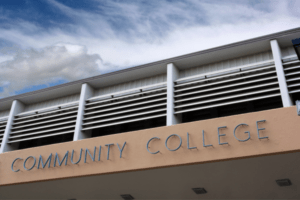 Community college is a local area college. Community colleges tend to offer certificate programs and associate degrees which typically take two years to complete as a student. These degrees may be in criminal justice, computer technology, general studies and much more.
Community college is a local area college. Community colleges tend to offer certificate programs and associate degrees which typically take two years to complete as a student. These degrees may be in criminal justice, computer technology, general studies and much more.
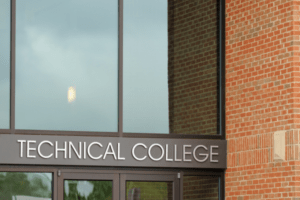 There are different names for trade schools which are also known as career college, technical college and vocational school. These programs are all career specific training such as becoming a plumber, electrician, welding, cosmetology and more.
There are different names for trade schools which are also known as career college, technical college and vocational school. These programs are all career specific training such as becoming a plumber, electrician, welding, cosmetology and more.
Depending on which type of school you choose: public, private, or community college the types of accommodations you get varies. All schools are legally required to provide accommodations but every school has different availability and support of those resources. Public colleges are the most likely to have established disability departments. They have more funding and are typically bigger. Private colleges are going to be able to offer different levels of support depending on how much funding and resources they dedicate to that department. When looking at private colleges, look at different policies and services different schools offer.
When looking at accommodations at a school or educational program, an individual with hearing loss should have access to reasonable accommodations. These can include closed captioning, sign language interpreter, Communication Access Real-Time Translation (CART), note taker, preferred seating, and assistive listening devices. Before an individual with hearing loss commits to a school, it is important to talk with the school or university about their accommodations that they can provide. This may be through disability services or an accommodations office. It is important that your child knows and can accommodate for themselves. They are going to be at school on their own and it is important that they understand how to advocate for their needs such as asking for clarification, repetition, notes after class, meeting with counselors, requesting interpreters, note takers, asking for captions on video and via online classes, and much more. If an individual with hearing loss is living on their own such as in a dorm, make sure they are equipped with technology that can alert them if there is a fire or even an alarm clock. See more about technology. If any private school is unable to provide any specific accommodations for a valid reason, The Division of Rehabilitation Services (DRS) will be able to help ensure that these accommodations are provided.
Division of Rehabilitation Services works on empowering people with disabilities while helping them pursue their goal of employment. This is done by providing career counseling, job training including; vocational training, community college training, and 4-year university training plus beyond. DRS also provides job placement services working alongside people with disabilities and helping them through the entire process of securing employment and helping with providing reasonable accommodations to help them attain and maintain their goals of employment. DRS can also provide supportive services to eliminate any barriers that arises during the job placement process ranging from appearance, communication, and transportation barriers.
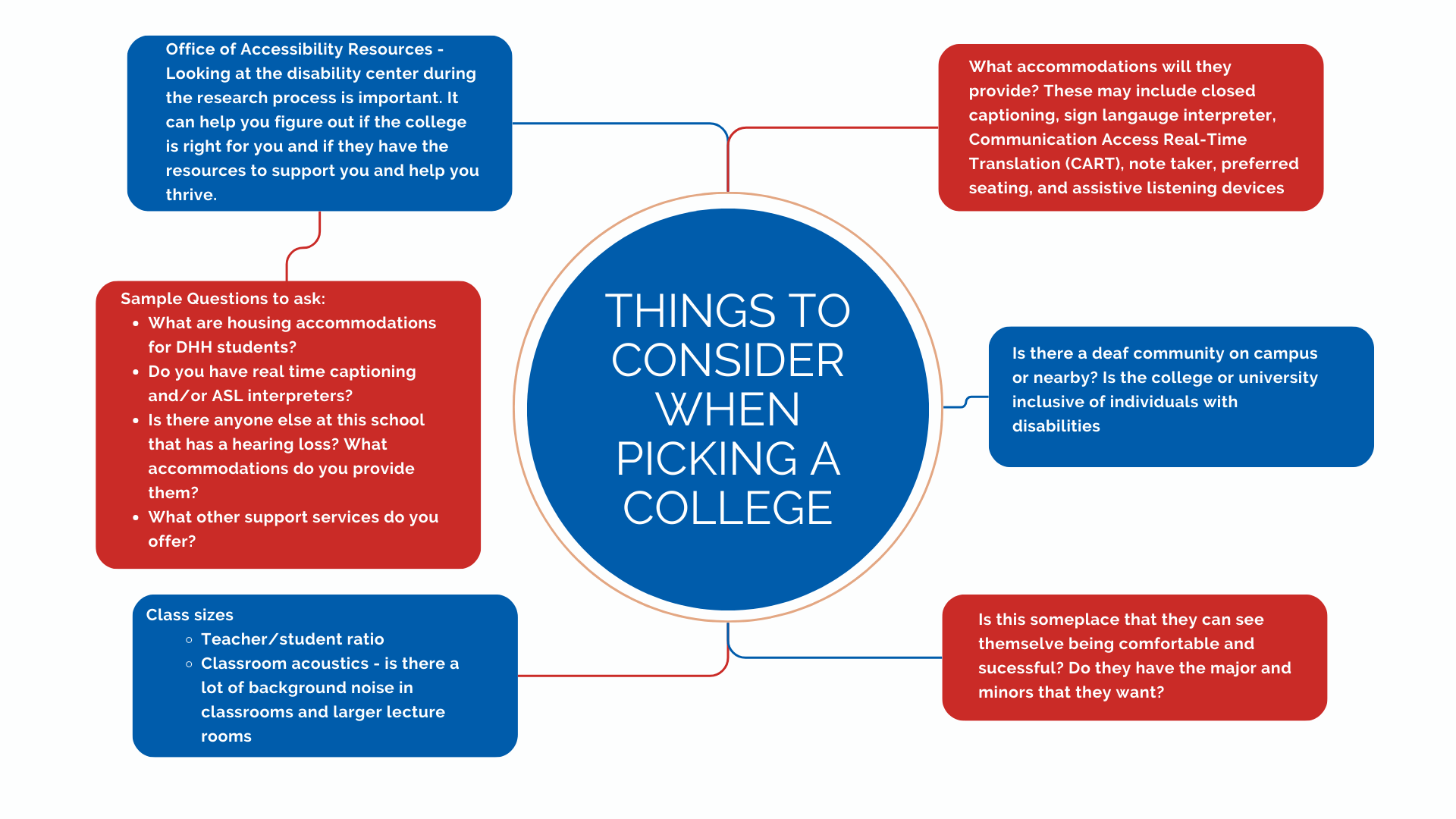

Organizing and maintaining important documents related to your deaf and hard of hearing loss is critical.
When working at a job, there is a lot of responsibility and one needs to know what accommodations they need. It is important that an individual with hearing loss is prepared and willing to advocate for themselves. This may be asking for a different piece of technology if the company uses walkie talkies and it is hard to hear with them. This may also be asking for captions during online meetings. The Hearing Loss Association of America has created a toolkit for individuals with hearing loss. Each and every job may have different accommodations that they can support. Talk to your employer about what services and accommodations they can support you with.
The US Equal Employment Opportunity Commission talks about deaf and hard of hearing rights that one has in the workplace.
Just because the individual with hearing loss has the right to specific accommodations does not mean they have to use them. There may be some accommodations they are not comfortable with and they have the right to refuse these accommodations. Oftentimes people think that a specific accommodation (For example a FM system) is good enough for the D/HH individual so they do not need to invest more money or time on other accommodations. The D/HH individual knows themself better than others, so it’s up to them to advocate for the specific accommodation that works the best for them and that will include declining specific accommodations and demanding a different one instead.
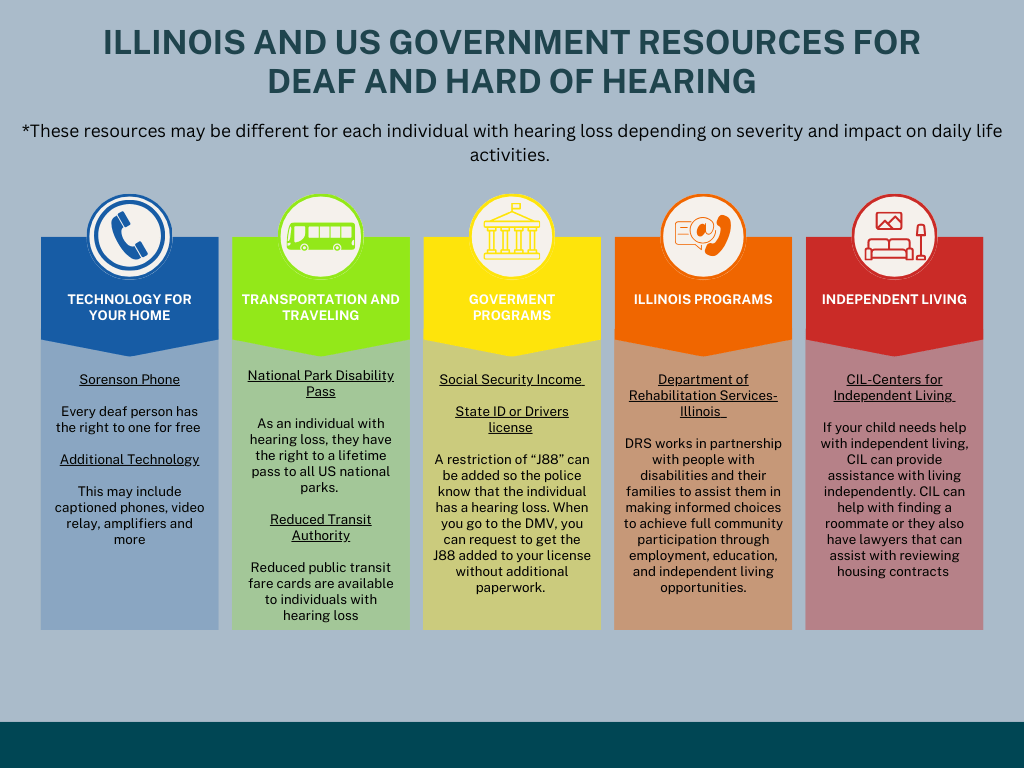
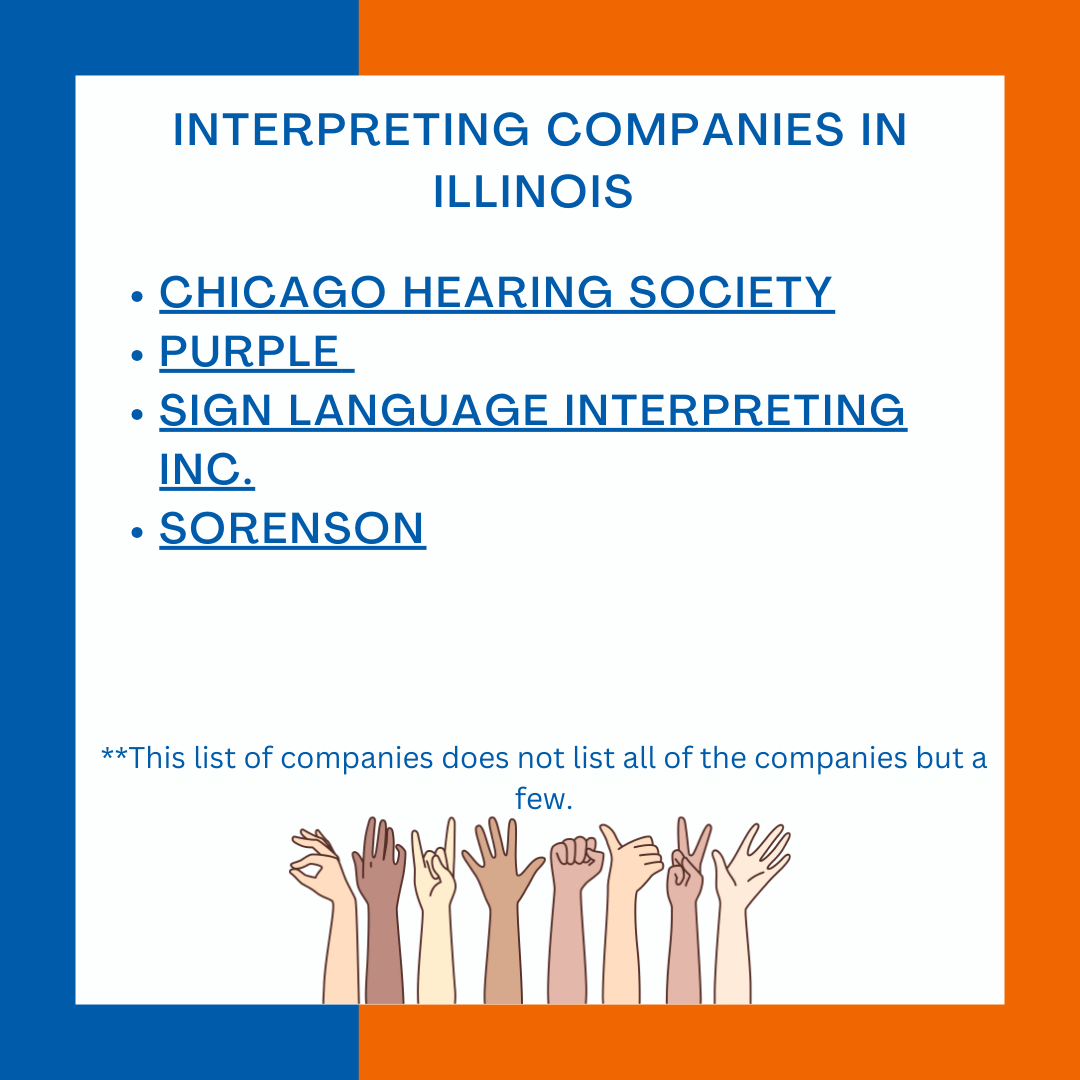
If you are in need of an interpreter here are some interpreting services that can provide in person and virtual interpreting. If you are going to the doctor, school or your workplace, it is their responsibility to find the interpreter.
Now that our DHH children are transitioning to college, community college, trade school or the workforce, they will most likely be totally responsible for advocating for their needs. We will always be there as a backup resource, but the responsibilities rest on their shoulders. So how do we let go and trust that they are equipped with the skills and knowledge necessary to thrive? Read our tips from parents as our children transition to college and beyond!

BE A PART OF IT ALL.
We hope you will consider making a gift to support these children. Thank you!

Sign up to be the first to know about new FHSR resources, programs, and events.
FHSR is a qualified 501(C)(3) tax exempt organization. Tax ID number 36-6082810.

FHSR’s MARCOM Gold Award-Winning Website was developed in collaboration with Carlson Integrated, LLC.
MarCom Awards is an international creative competition that recognizes outstanding achievement by marketing and communication professionals. MarCom Awards is administered and judged by the Association of Marketing and Communication Professionals. Judges are industry professionals who look for companies and individuals whose talents exceed a high standard of excellence and whose work serves as a benchmark for the industry. There were over 6,000 entries from 41 countries in the MarCom Awards 2021 competition.